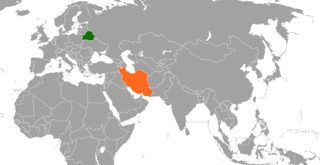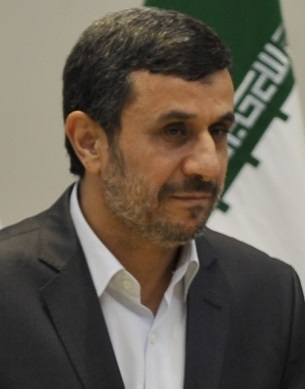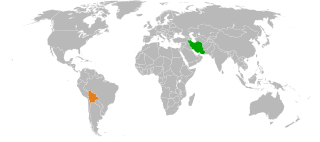
Cuba's foreign policy has been fluid throughout history depending on world events and other variables, including relations with the United States. Without massive Soviet subsidies and its primary trading partner, Cuba became increasingly isolated in the late 1980s and early 1990s after the fall of the USSR and the end of the Cold War, but Cuba opened up more with the rest of the world again starting in the late 1990s when they have since entered bilateral co-operation with several South American countries, most notably Venezuela and Bolivia beginning in the late 1990s, especially after the Venezuela election of Hugo Chávez in 1999, who became a staunch ally of Castro's Cuba. The United States used to stick to a policy of isolating Cuba until December 2014, when Barack Obama announced a new policy of diplomatic and economic engagement. The European Union accuses Cuba of "continuing flagrant violation of human rights and fundamental freedoms". Cuba has developed a growing relationship with the People's Republic of China and Russia. Cuba provided civilian assistance workers – principally medical – to more than 20 countries. More than one million exiles have escaped to foreign countries. Cuba's present foreign minister is Bruno Rodríguez Parrilla.

Geography is an important factor in informing Iran's foreign policy. Following the 1979 Iranian Revolution, the newly formed Islamic Republic, under the leadership of Ayatollah Khomeini, dramatically reversed the pro-American foreign policy of the last Shah of Iran Mohammad Reza Pahlavi. Since the country's policies then oscillated between the two opposing tendencies of revolutionary ardour to eliminate non-Muslim Western influences while promoting the Islamic revolution abroad, and pragmatism, which would advance economic development and normalization of relations, bilateral dealings can be confused and contradictory.

The dynamic between the League of Arab States and the Islamic Republic of Iran has been ambivalent, owing to the latter's varying bilateral conduct with each country of the former. Iran is located on the easternmost frontier of the Arab League, which consists of 22 Arab countries and spans the bulk of the Middle East and North Africa, of which Iran is also a part. The Arab League's population is dominated by ethnic Arabs, whereas Iran's population is dominated by ethnic Persians; and while both sides have Islam as a common religion, their sects differ, with Sunnis constituting the majority in the Arab League and Shias constituting the majority in Iran. Since Iran's Islamic Revolution in 1979, the country's Shia theocracy has attempted to assert itself as the legitimate religious and political leadership of all Muslims, contesting a status that has generally been understood as belonging to Sunni-majority Saudi Arabia, where the cities of Mecca and Medina are located. This animosity, manifested in the Iran–Saudi Arabia proxy conflict, has greatly exacerbated the Shia–Sunni divide throughout the Muslim world.

China–Cuba relations are the interstate relations between the People's Republic of China and Republic of Cuba. The origins of the relations began when the Qing dynasty established a consulate in Havana while Cuba was a still a colony of Spain in 1879. In 1902, the Qing dynasty recognized the independence of the Republic of Cuba from the United States, which had taken it from Spain in 1898. Cuba recognized the PRC in September 1960.

Iran–Italy relations are the diplomatic relations between the Islamic Republic of Iran and the Italian Republic.

After the establishment of diplomatic ties with the Soviet Union after the Cuban Revolution of 1959, Cuba became increasingly dependent on Soviet markets and military aid and was an ally of the Soviet Union during the Cold War. In 1972 Cuba joined the Council for Mutual Economic Assistance (Comecon), an economic organization of states designed to create co-operation among the communist planned economies, which was dominated by its largest economy, the Soviet Union. Moscow kept in regular contact with Havana and shared varying close relations until the end of the Soviet Union in 1991. Cuba then entered an era of serious economic hardship, the Special Period.

One of the most dramatic changes in government in Iran's history was seen with the 1979 Iranian Revolution where Shah Mohammad Reza Pahlavi was overthrown and replaced by Ayatollah Ruhollah Khomeini. The authoritarian monarchy was replaced by a long-lasting Shiite Islamic republic based on the principle of guardianship of Islamic jurists,, where Shiite jurists serve as head of state and in many powerful governmental roles. A pro-Western, pro-American foreign policy was exchanged for one of "neither east nor west", said to rest on the three "pillars" of mandatory veil (hijab) for women, and opposition to the United States and Israel. A rapidly modernizing capitalist economy was replaced by a populist and Islamic economy and culture.

Iran–Venezuela relations have strengthened substantially in recent years. "Iran and Venezuela are two friendly and united states which pave their ways to further progress and welfare for their nations", according to President Rouhani. The two countries are contemporary strategic allies of the Russian Federation and the People's Republic of China while opposing U.S. hegemony in their respective regions.
This is the timeline of the nuclear program of Iran.

Cuba–Pakistan relations refers to the bilateral relations between Cuba and Pakistan. Cuba has an embassy in Islamabad and Pakistan has an embassy in Havana. Relations between the countries strengthened after Cuba provided humanitarian assistance to the victims of the 2005 Kashmir earthquake.

Croatia and Iran established diplomatic relations on April 18, 1992 when Iran became the 7th country in the world and the first among Asian and Muslim-majority countries to recognize the newly independent Croatia. Croatia has an embassy in Tehran while Iran has an embassy and a cultural center in Zagreb. Relations among two countries are described as good and friendly.

The Byelorussian Soviet Socialist Republic recognized de facto the Islamic Republic of Iran in February 1979, and Belarus and Iran established de jure diplomatic relations in 1992. Belarus has an embassy in Tehran. Iran has an embassy in Minsk.

The Presidency of Mahmoud Ahmadinejad consists of the 9th and 10th governments of the Islamic Republic of Iran. Ahmadinejad's government began in August 2005 after his election as the 6th president of Iran and continued after his re-election in 2009. Ahmadinejad left office in August 2013 at the end of his second term. His administration was succeeded by the 11th government, led by Hassan Rouhani.

Brazil–Iran relations are the bilateral relations between the Federative Republic of Brazil and the Islamic Republic of Iran. Relations are characterized by economic and diplomatic cooperation and are quite friendly. Iran has a productive trade balance with Brazil. The two governments signed a document to bolster cooperation during the G-15 Summit in Tehran in 2010. However, since the election of former Brazilian president, Dilma Rousseff, relations between the two countries recently have deteriorated greatly, following Rousseff shifting Brazil away from Iran due to Iran's violation of human and civil rights. Mahmoud Ahmadinejad's media adviser, Ali Akbar Javanfekr, was quoted as stating that Rousseff had "destroyed years of good relations" between them. He denied making such a statement.
The Thirteenth G-15 summit was held in Havana, Cuba on September 14, 2006. The group's meeting was coordinated to take place at the same time as a non-aligned summit of 116 developing nations in the Cuban capital.

Bolivia–Iran relations refer to foreign relations between Bolivia and Iran. Iran has an embassy in La Paz. Bolivia has an embassy in Tehran. Both countries are members of the Non-Aligned Movement and Group of 77.

Iran–Sudan relations refers to diplomatic, economic and military relations between Sudan and Iran. For nearly three decades, Iran and Sudan enjoyed a close relationship.

Iran–Philippines relations refer to foreign relations between Iran and the Philippines. Diplomatic relations were established on January 22, 1964. There is a community of thousands of Iranians in the Philippines including many international students drawn by the country's low-cost English education.

Bangladesh–Cuba relations refer to the bilateral relations between Bangladesh and Cuba. Relations between the two countries have been warm with both the countries putting their efforts to strengthen them further.

Iran–Kenya relations are bilateral relations between Iran and Kenya.






















